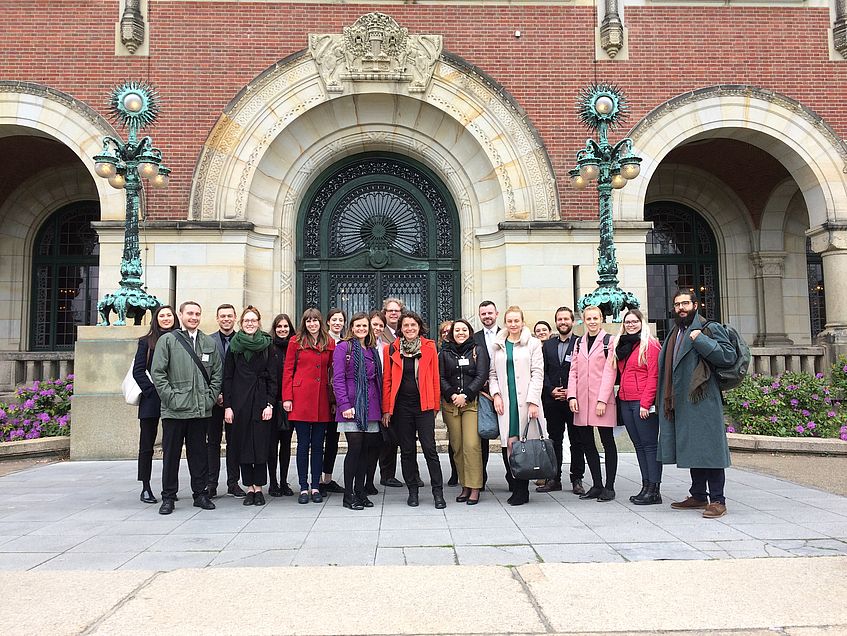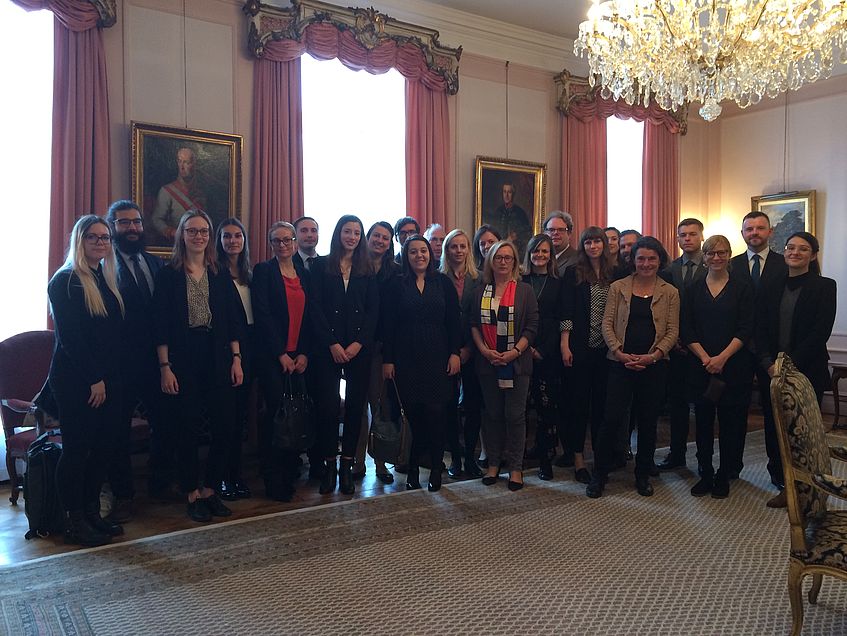Study Trip to The Hague 2019
In May 2019, the students of the LL.M. International Legal Studies Program got the chance to participate in a study trip to the courts and tribunals located at The Hague. Under the guidance of our LL.M. professors Prof. Christina Binder and Prof. Hafner, the three-day trip enabled us to visit the International Criminal Court (ICC) where the Ongwen Trial was going on that day. Ongwen is an alleged former brigade commander of the Sinia Brigade of the LRA, an Ugandan armed group that, during the period of 1 July 2002 until an unspecified date in 2004, supposedly carried out an insurgency against the government of Uganda and against the population in Uganda. He is being trialed at the ICC for war crimes and crimes against humanity.
At the ICC, Mrs Michaela Wagner, the Associate Legal Officer of the Trial Chamber, explained the function and structure of the ICC. The purpose is to prosecute individuals for genocide, war crimes, and crimes against humanity. Besides the Ongwen case, the ICC is at present dealing with the cases of Blé Goudé and Gbabo (Cote d’Ivoire), Bosco Ntaganda (Democratic Republic of Congo) and Banda (Sudan).
In the afternoon of the first day we headed to EUROJUST where the Austrian prosecutor, Mag. Gerhard Jarosch, introduced us to the history and purpose of EUROJUST which was established in 2003 after the fight against terrorism since the 9/11 attacks in the USA. Since then, the responsibilities of EUROJUST also cover operational tasks and involvement in European judicial cooperation. Another function of EUROJUST is to negotiate cooperation agreements with third states.
On the second day, two speakers at the Kosovo Specialist Chambers (KSC) explained to us the jurisdiction and the mandate of this temporary judicial institution which covers crimes against humanity, war crimes and other crimes under Kosovo laws, allegedly committed between 1 January 1998 and 31 December 2000 by or against Kosovo/Federal Republic of Yugoslavia’s citizens. In addition, we learned that the KSC allows victims to participate in the proceedings.
At our afternoon visit to the International Court of Justice we were accompanied by two assistants who not only shared some insights regarding their day-to-day activity at the Court, but also toured us through the Peace Palace. A fascinating presentation on the principal judicial organ of the UN also introduced us to famous contention cases as well as advisory opinions rendered by the court, and how the world’s court contributes to the development of international law.
On the May 22nd, the last day of the trip, we went to the Special Tribunal for Lebanon, which is the first tribunal of international character prosecuting terrorist crimes. The visit encompassed five presentations: the Tribunal and briefings with chambers, the registry, the prosecution and defence offices. It was interesting to hear that the prosecution’s strategy was based entirely on circumstantial evidence, using state of the art technologies which led to more or less controversial assumptions. Thus, the tribunal has an extremely difficult mandate to render its decision, both from the victims‘ as well as from the perpetrators‘ perspective.
Overall, this study trip was particularly insightful as regards the most important international judicial fora in addition to providing our group with the opportunity to meet fellow students from other law programs in Munich and Fribourg.
Ananda Borges and Cristina Solcan (LL.M. Class 2018-2019)



